'Kon-Tiki' in modern popular culture
The Kon-Tiki expedition became the most talked about adventure after World War II. With increasing fame throughout the 1950s, the term "Kon-Tiki" became a buzz word and eventually a popular culture phenomenon in its own right.
Annonse
It's just after 10 in the morning, August 6, 1947. In the middle of the Pacific Ocean, the Kon-Tiki fleet is drifting toward the sharp corals of Raroia Reef in the Tuamotu Islands, stern first. A few hours later, radio waves around the world are buzzing with news of Kon-Tiki's successful journey. The expedition leader, Thor Heyerdahl, becomes world famous in no time.
The Kon-Tiki expedition became the most talked about adventure after World War II. The book sells over 50 million copies in 74 languages. The documentary has been seen by ten times as many people in the cinema and on TV. Kon-Tiki becomes a buzz word in the 1950s and a popular culture phenomenon.
The raft itself was named after the famous Polynesian god Tiki and in honor of Con-Tiki Viracoccha, the South American culture hero who, according to popular myth, sailed into the Pacific sunset in search of a new place to settle. Kon-Tiki, with its hard k sound, is reminiscent of well-known brand names such as Kodak and Coca Cola. With this small change, Heyerdahl created a new name that could be trademarked.
But Heyerdahl never took out a trademark for 'Kon-Tiki'. It was probably all for the best. The name would not be used as often if companies were required to pay royalties. It would never become so widespread and popular all over the world. Kon-Tiki became a phenomenon in popular culture, meaning almost anything exotic or from the South Seas, except for a daring expedition to test the capabilities of a primitive vessel.
"Tiki" bars and restaurants were the first to adopt the name. Tiki culture began in California in the 1920s, with tourists wanting to recreate their experience in Hawai'i or Tahiti. They wanted to extend the feeling of bliss in paradise, with palm trees and drinks served in coconuts, and with the familiar up-beat music of the ukulele.
In 1947, with Kon-Tiki fame, this bar and restaurant culture became a worldwide phenomenon. Even on the French Riviera, bars and nightclubs were called Kon-Tiki.
Even if you don't like tropical rum drinks, you can find a "Kon-Tiki" drink to suit your needs. In Georgia, a lush Kon-Tiki red wine was sold. Or how about lemon liqueur from Germany? Or an orange Bols from the Netherlands? If you are interested in sophisticated cognacs, you can find one under the brand name of Thor Heyerdahl.
You can see several of the products that were produced in the photo gallery below:
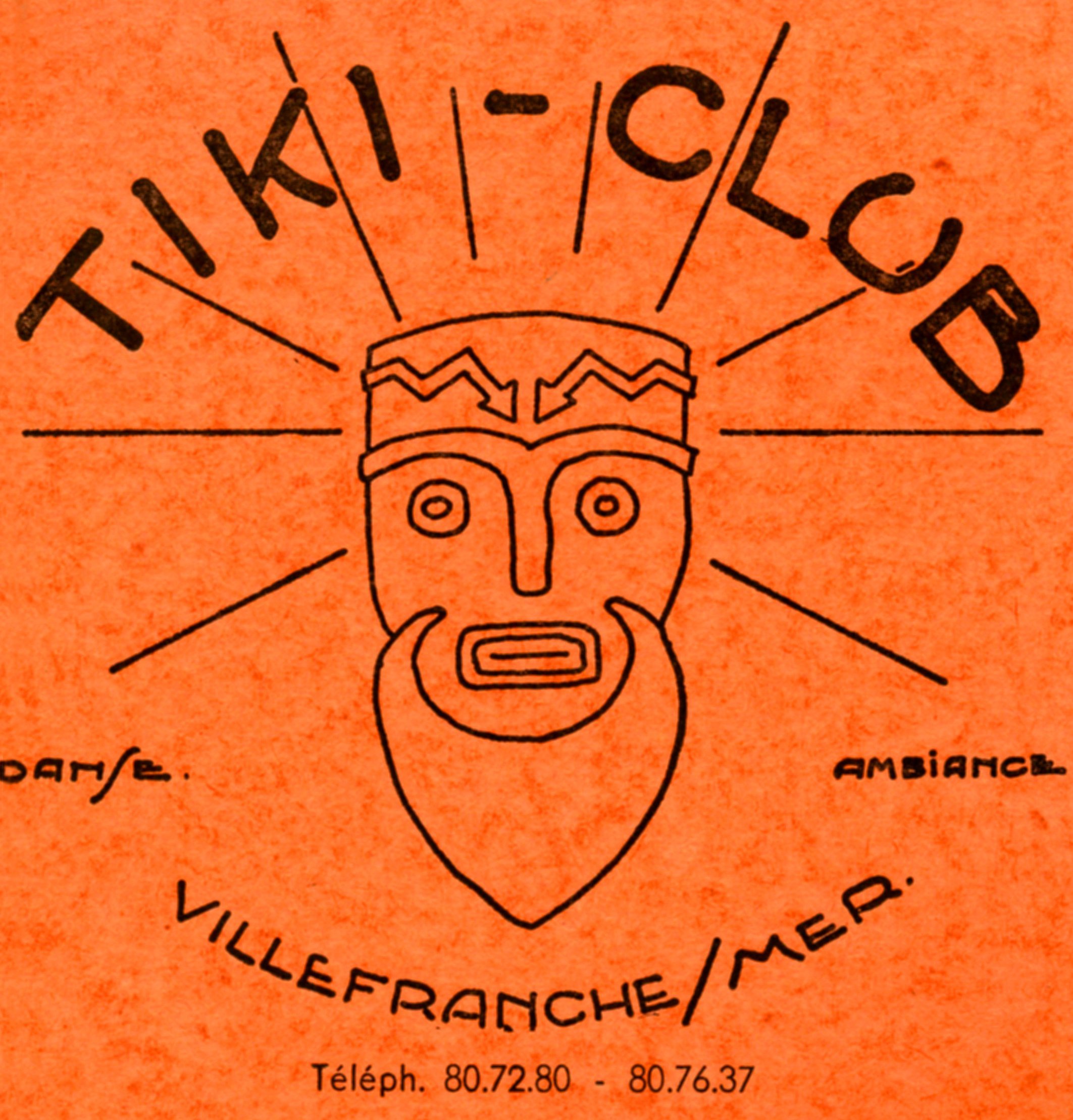
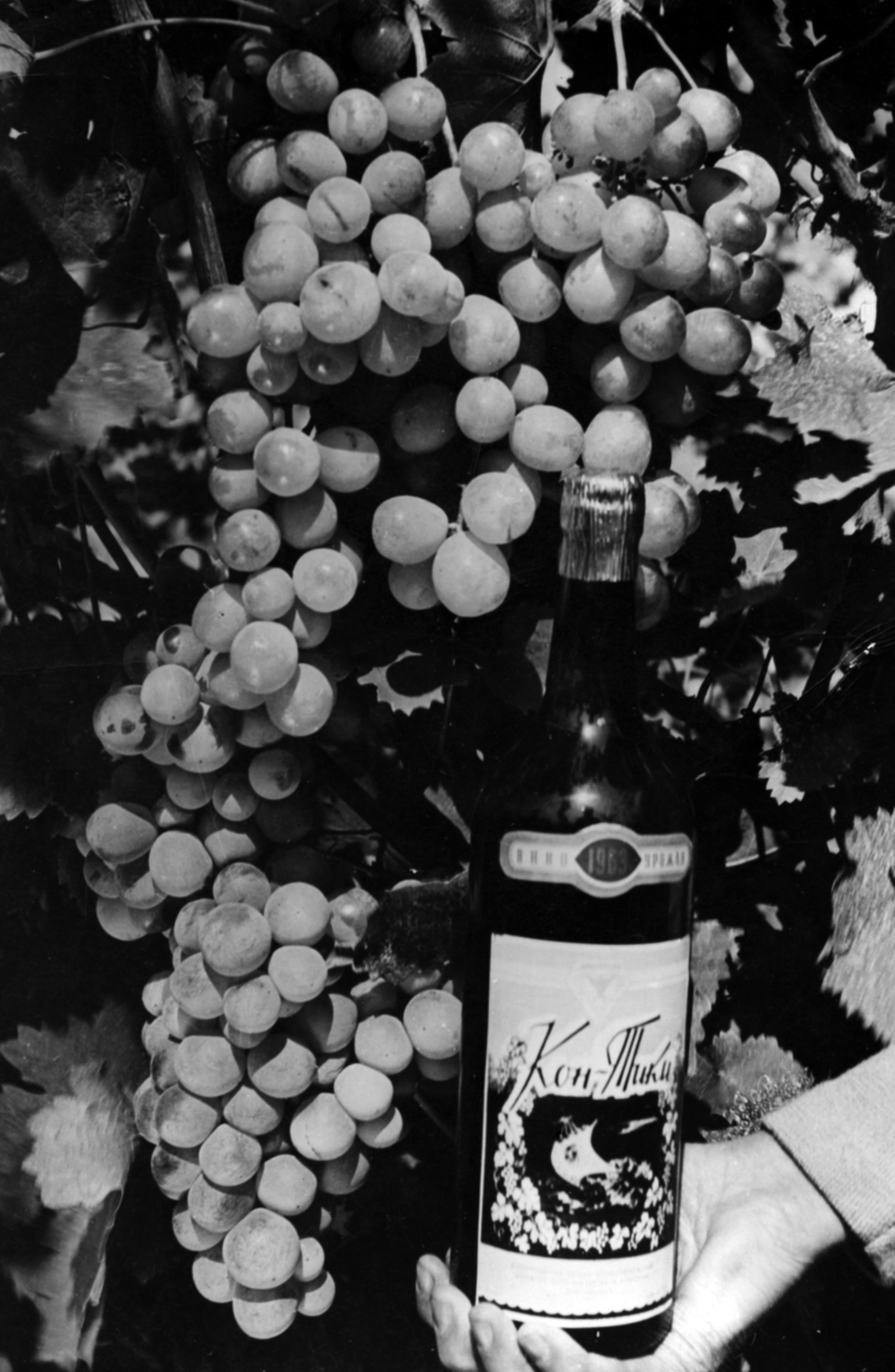

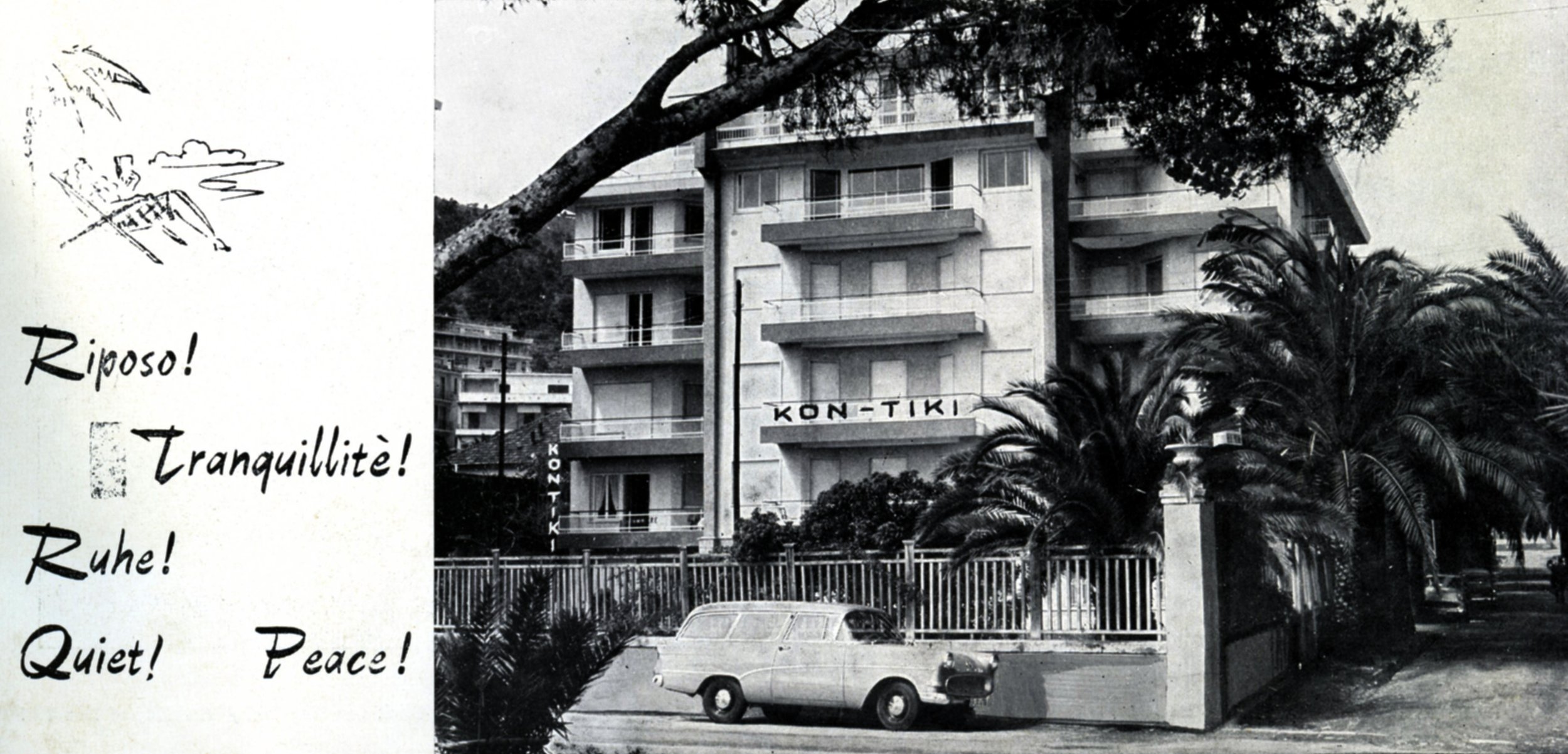
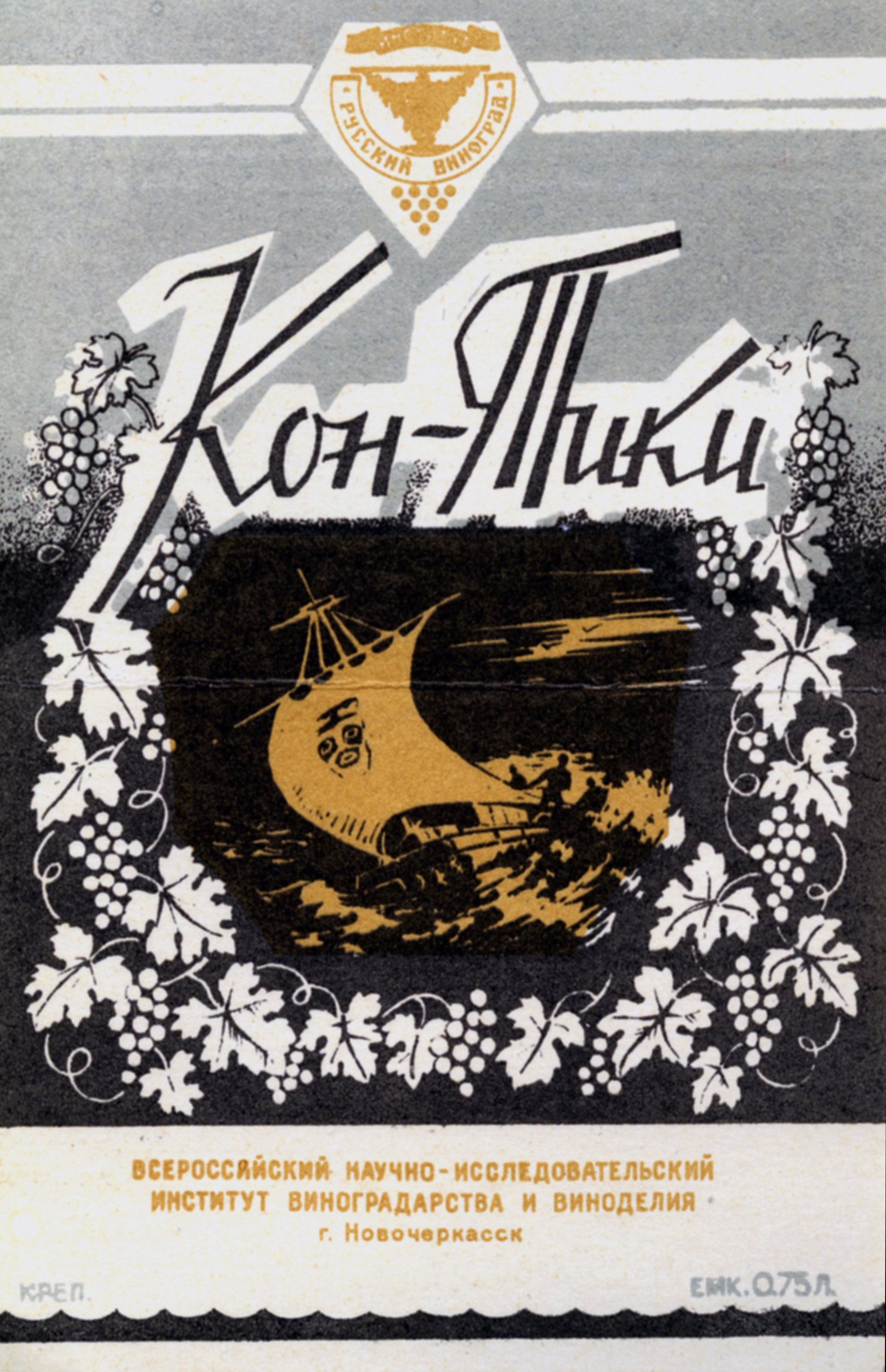


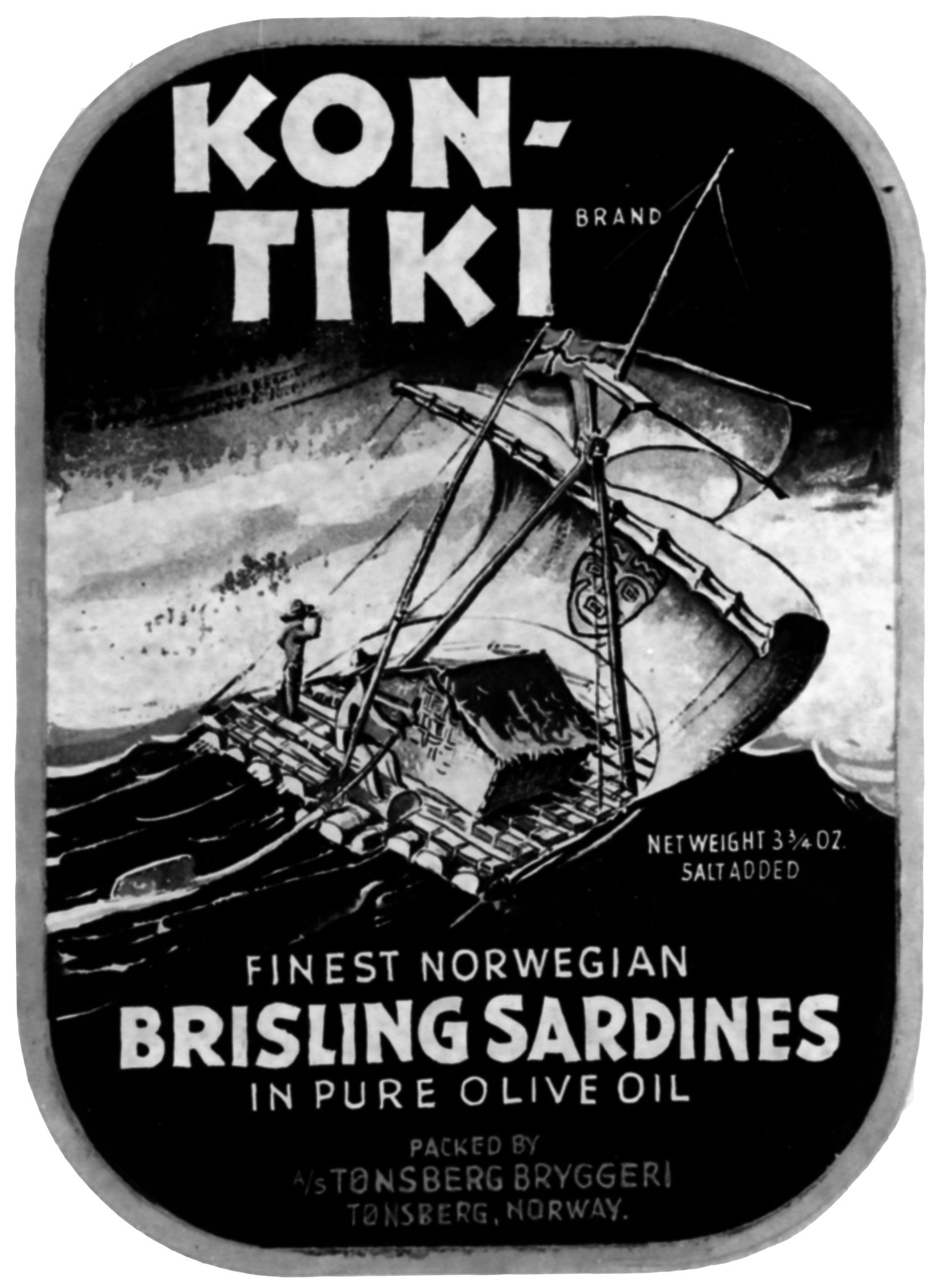

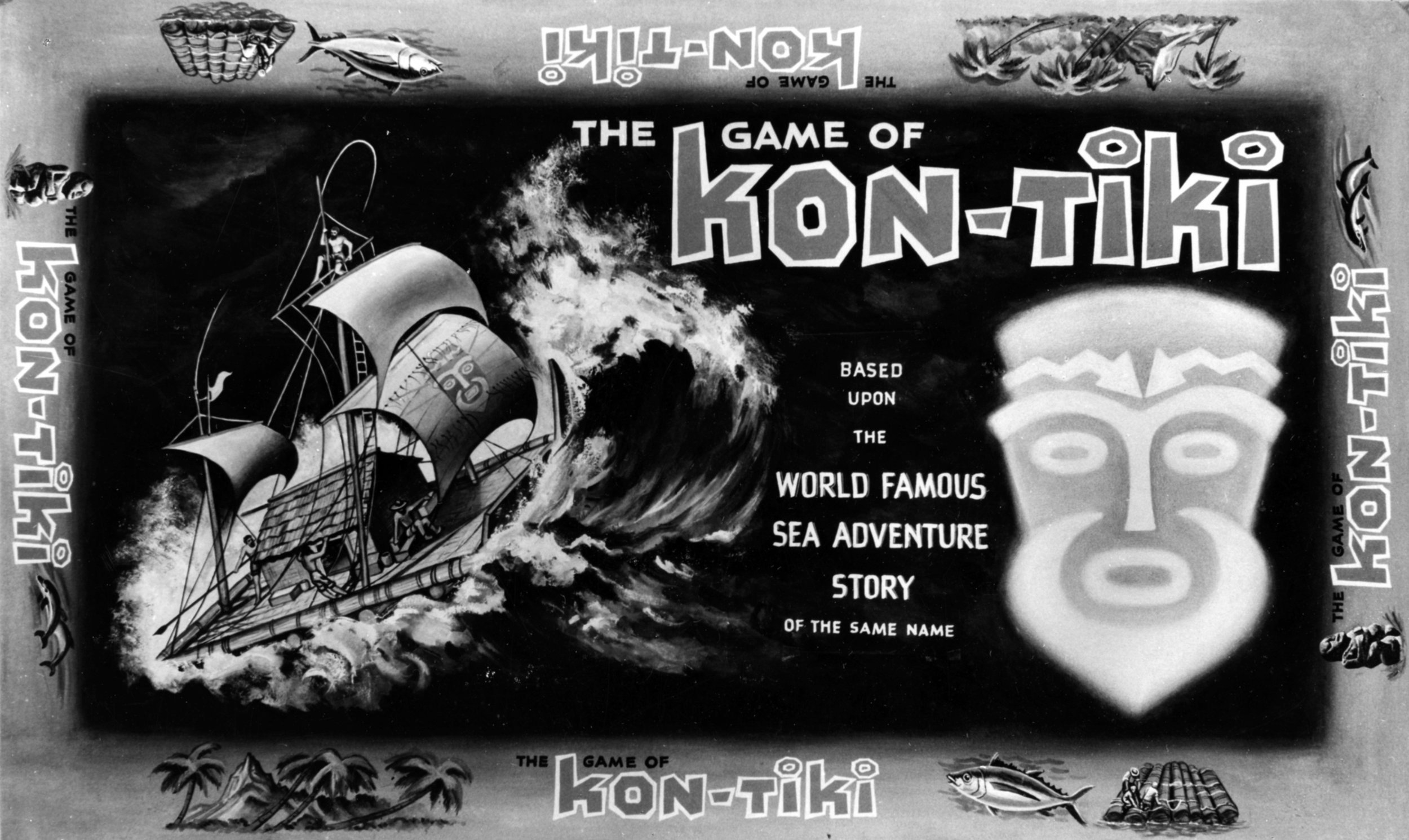
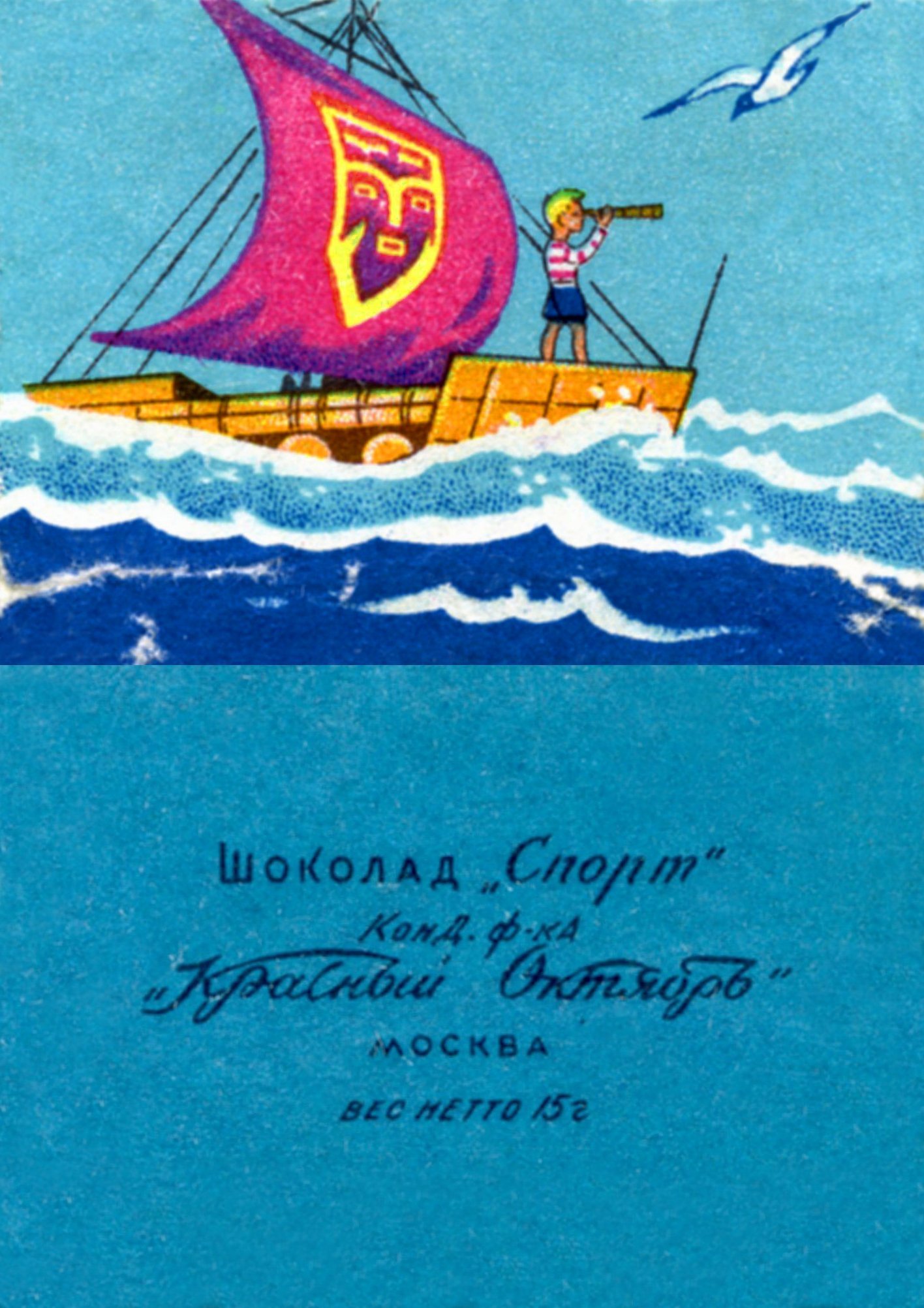
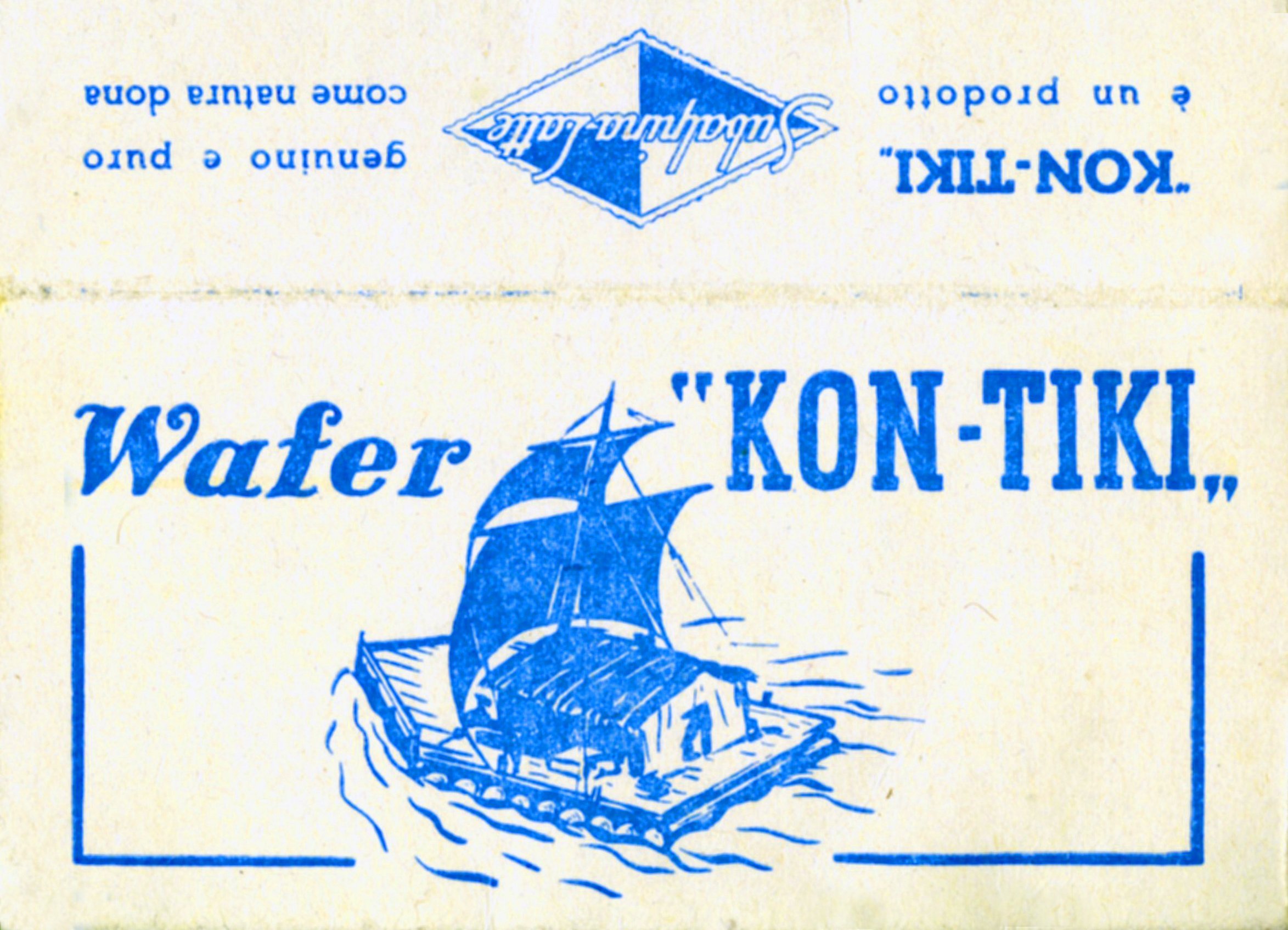
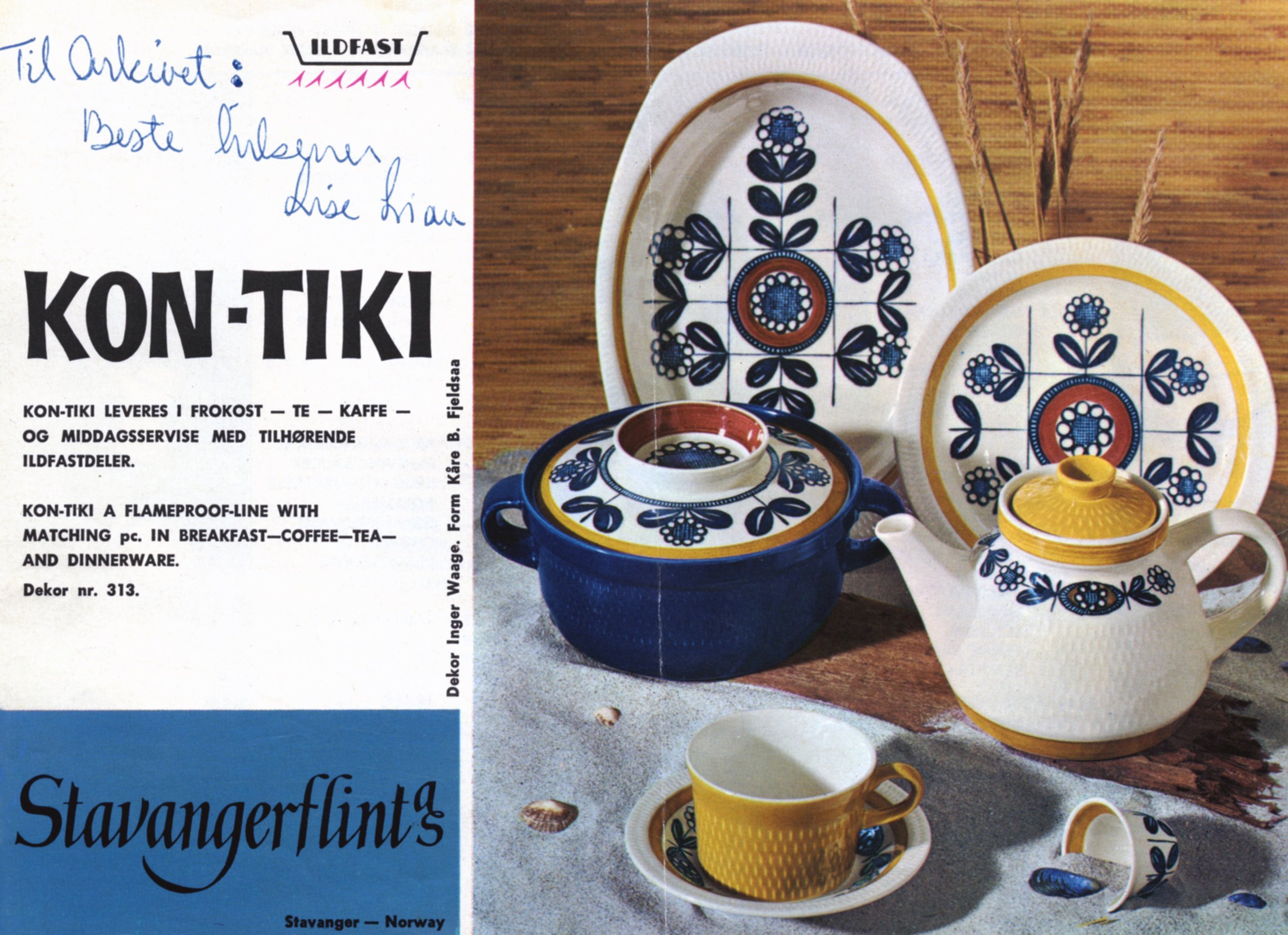

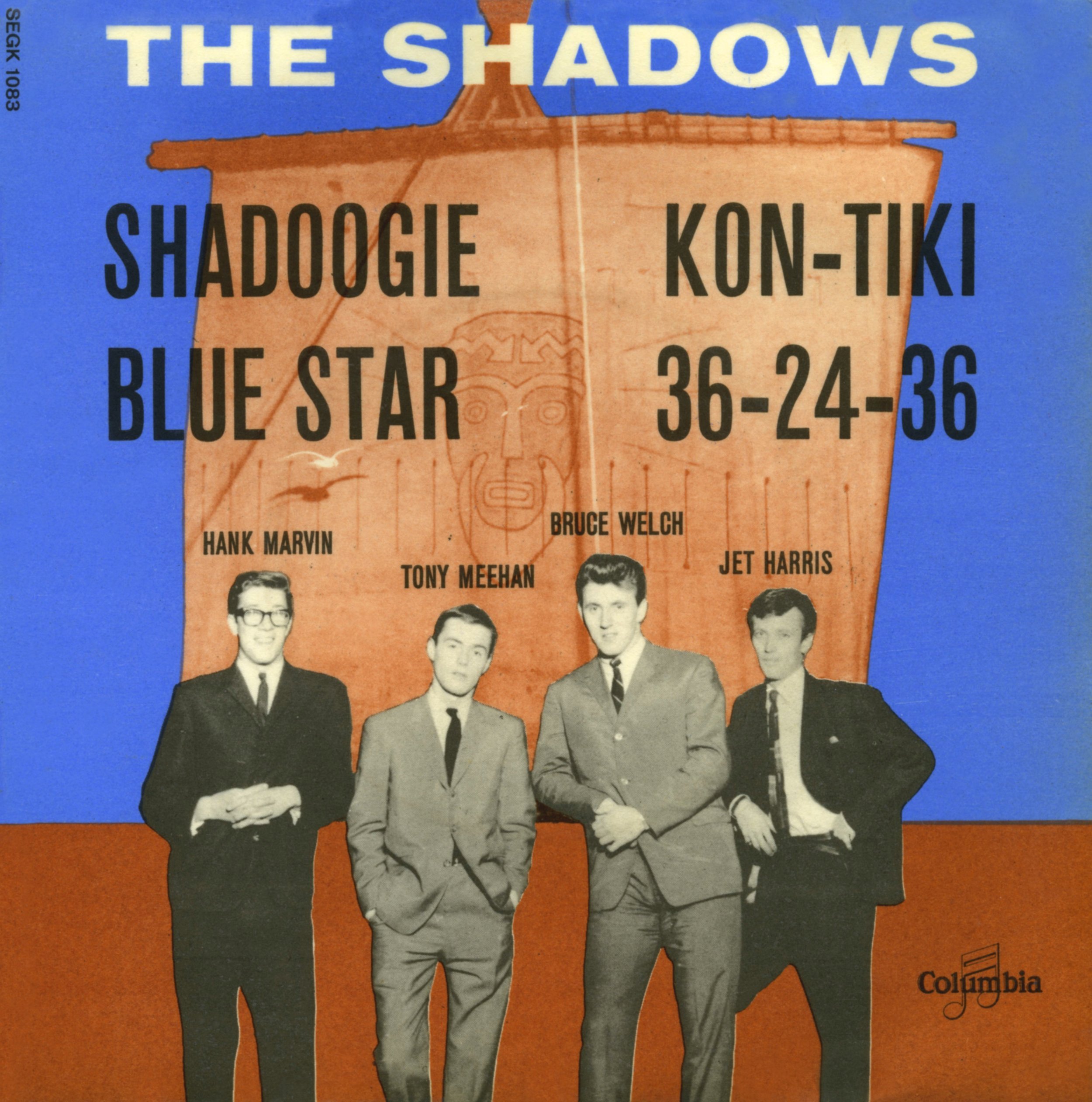
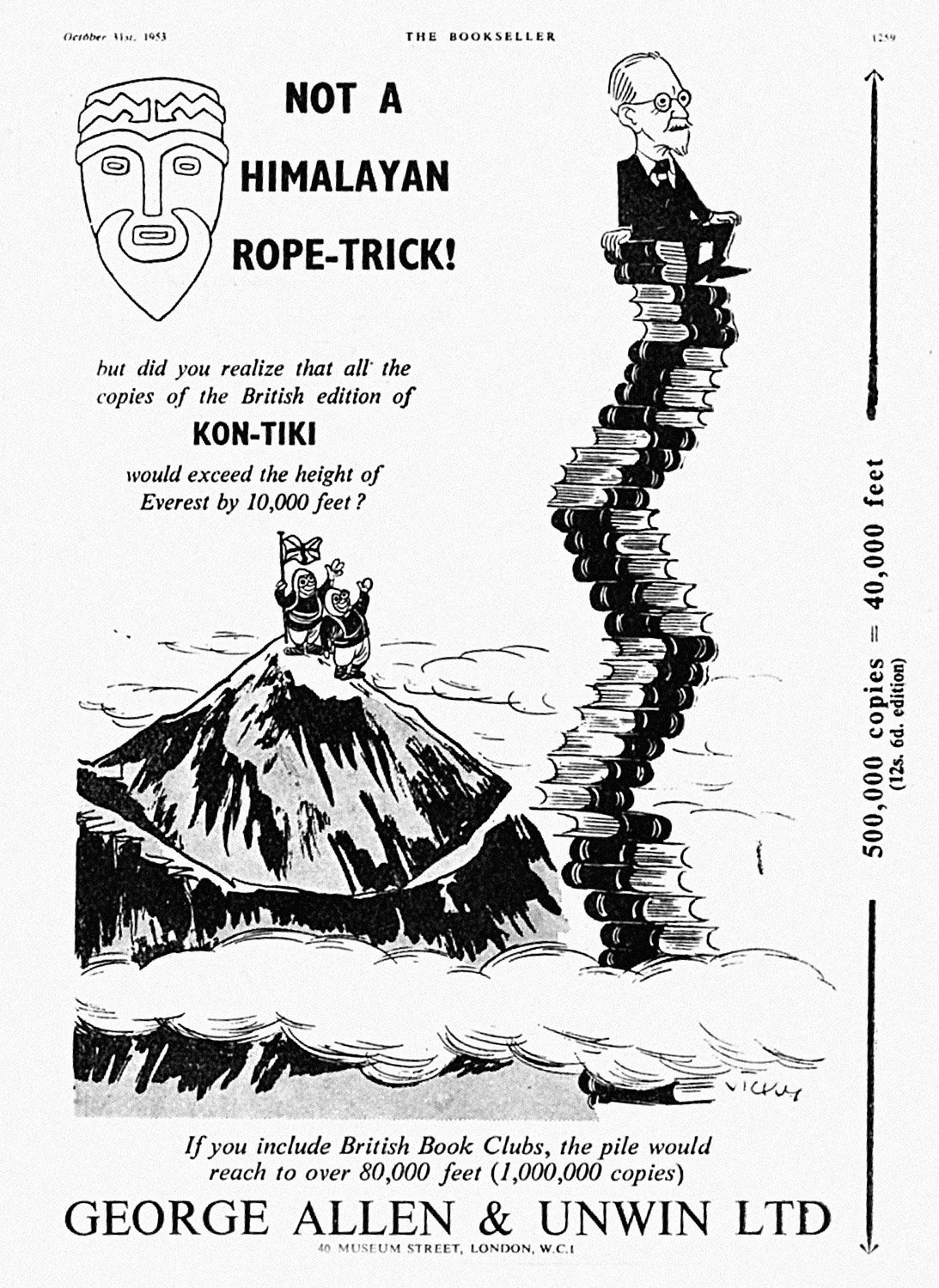
Even in Norway, restaurants were named after the famous fleet. The most famous was at the national exhibition center at Sjølyst, just a few miles from the Kon-Tiki museum. It was designed by Erik Hesselberg, the expedition navigator and artist who painted the famous Kon-Tiki face on the sail. He designed several such restaurants, including one in Hamburg. As the phenomenon grew, hotels and campsites were also named Kon-Tiki, and some of them exist today. Many a glass-bottomed Kon-Tiki boat has roamed the lagoons outside tropical resorts.
The new generation of rockers also found Kon-Tiki exciting. Just listen to The Shadows, Kon-Tiki, an instrumental that became a No. 1 hit on the UK Singles Chart in October 1961. The song was written by Michael Carr. One of the singles released features The Shadows at the Kon-Tiki Museum in front of the equally famous raft.
Almost everything you can think of has at one point or another been named Kon-Tiki or Kontiki. Here are just a few examples:
Kon-Tiki canned sardines were once produced in Tønsberg, Norway, while you had to travel to Chile if you wanted Egg Kon-Tiki.
Are you interested in knitting? No problem. Kon-Tiki knitting patterns are readily available.
At one time, a brand of pants was sold under this name, and even Ralph Lauren created a line of Hawaiian-style shirts called Kon-Tiki.
And in Australia, women could dress in style.
Kon-Tiki is not just for the adventurous. Nerds like it too. The first personal computers in Norway were produced by Kon-Tiki Data.
In America you will find Kon-Tiki, a company that once made peer-to-peer video systems.
A computer software that controls traffic lights is also called Kon-Tiki in the US.
Spear's Games in England developed a board game where you travel in a raft from Callao, Peru to the Tuamotu Islands, and fight against the other players.
Spear’s Games, England






